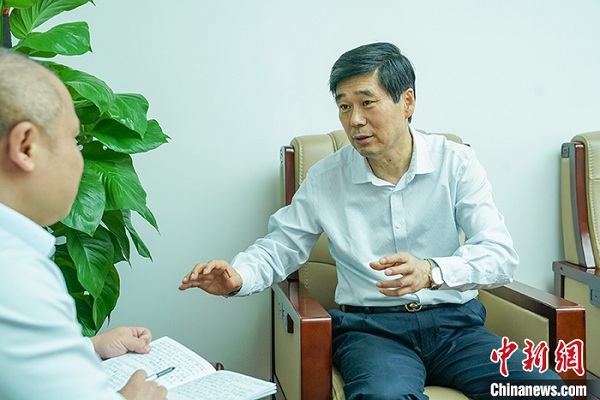CPPCC member expresses concerns for 'left behind' children and elderly

Qian Xueming, a CPPCC National Committee member and vice chairman of the CPPCC of Guangxi Zhuang autonomous region, takes part in an interview. [Photo by Chen Guanyan/chinanews.com]
Qian Xueming, a member of the National Committee of the Chinese People's Political Consultative Conference (CPPCC) and vice chairman of the CPPCC of Guangxi Zhuang autonomous region, showed concerned for the "left behind" elderly and children in impoverished rural areas.
Qian noted that as this is the final year in China's plan to fight extreme poverty, more attention needs to be paid to actively solving the problem of supporting "left-behind" seniors and the education of "left-behind" children in rural areas.
With the migration of young and middle-aged people from impoverished families in rural areas, many rural families have moved to cities and towns, making the issue of pensions important for seniors who have difficulties with integrating into urban areas, Qian said.
On the other hand, the lack of sufficient high-quality teachers makes it difficult to provide rural education in impoverished areas, Qian added. The problem of enrolling and educating children of migrant workers in cities has not yet been completely resolved because of the lack of effective policy design and institutional arrangements.
Qian suggested solving the aging problem of impoverished rural families through the integration of medical and nursing care. On the basis of realizing the integrated management of county and rural medical and health services in various regions, rural medical and nursing integration should be accelerated, in which the directors of township hospitals will also serve as the director of the nursing home.
In addition, the combination of family self-care, medical and health institution services, as well as social assistance will be promoted to meet the needs of senior care at different levels of rural elderly groups in impoverished areas for life care, medical services, and family care, Qian added.
He also suggested changing the current boarding schools for left-behind children constructed in rural areas into boarding schools for migrant children in small and medium-sized cities so that children from impoverished families can stay with their parents and enjoy urban high quality education resources.


